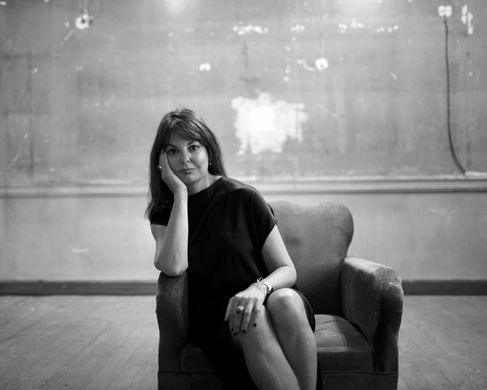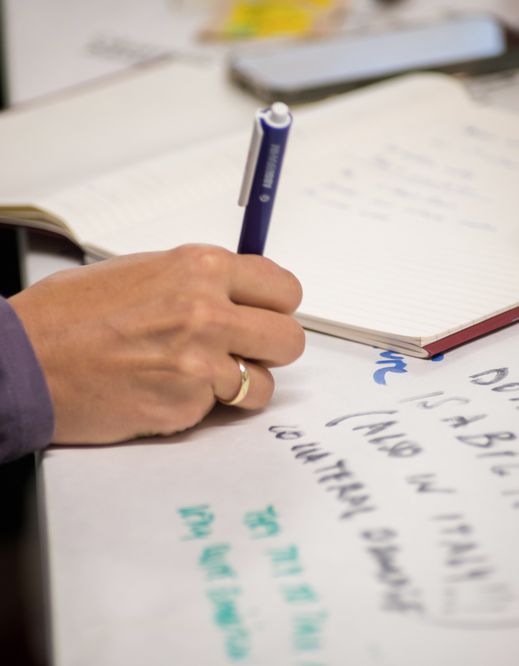The first definition for the word feminism that pops up on the world wide web is the following: "Quite simply, feminism is about all genders having equal rights and opportunities. It is about respecting diverse women's experiences, identities, knowledge and strengths, and striving to empower all women to realize their full rights”. That seems to be accurate since it is mainly women who have been excluded from every power structure for centuries. Yet is it so quite simple to define what gender is – and for that matter, what constitutes a woman's identity, or anidentity per se?
In her book We Should All be Feminists, Chimamanda Ngozi Adichie argues, among other essential truths,that gender matters everywhere in the world. The world, however, is not an abstract entity. It consists of many diverse places; each with its own historical, societal, economic and climatic particularities. What does it mean to be a woman in a set of different geographical contexts? This valid and pertinent question is the subject of the book Of Cities and Women written by artist and poet Etel Adnan, in which she reflects on how the environment, culture and people shape and define women's bodies, minds and liberties. Furthermore, is it only one single gender that matters? One should not forget that as early as 1990, philosopher Judith Butler called upon society to create gender trouble by disrupting the binary view of sex, gender, and sexuality.
What could mean to be a feminist in different geographical and cultural contexts within the visual arts is what this course will aim to touch upon during a short but hopefully fruitful and condensed time frame. The classes will include group seminars, research visits (in the town and beyond), and guest lectures followed by discussions and private tutorials. Through a series of readings and conversations, participants will be invited to reflect on curatorial methodologies and challenges, as these occurred in particular case studies, some of which will be presented in the class by guest curators as well as by the course instructor(s). Hands-on research and practical exercises will be encouraged, while participants may choose to work alone or collectively in smaller groups to form curatorial ideas for projects.
key data
- Venue
- Festung Hohensalzburg
- Date
- 31. 7. – 12. 8. 23
- Requirements
- None
- What to bring
- Motivation and love
- Teaching Language
- English (the teacher also speaks Greek and French)
Marina Fokidis
Marina Fokidis is a curator, writer, and educator based in Athens, Greece. She is the founder of the art center Kunsthalle Athena, ( www.kunsthalleathena.org) which was established in 2010 and operated as a non-profit art space until 2015 and of the journal "South as a State of Mind (www.southasastateofmind.com ) which was founded in 2012 as a platform for critical discourse on contemporary art and culture, with a particular focus on south to south to south correlation and shared intensities.
Fokidis is known for her advocacy of emerging and underrepresented artists, particularly those working in Greece, South Europe, and the wider Mediterranean region. Her curatorial practice is characterised by a strong focus on geography, co-existence, locational experimentation, and critical engagement with social and political issues. In 2014 she was appointed Head of the Artistic Office in Athens and curatorial advisor for documenta 14. There she worked closely with the artistic director, Adam Szymczyk, and the members of the curatorial team to develop a program that incorporated a wide range of critical perspectives, approached from multiple angles and presented simultaneously in two different locations-Athens and Kassel- and not just a single one, as per Documenta’s tradition. In 2011 Fokidis was one of the curators of the 3rd Thessaloniki Biennial of Contemporary Art. She was also commissioner and curator of the Greek Pavilion at the 51st Biennale di Venezia (2003) and one of the curators of T.I.C.A.B. – Tirana International Contemporary Art Biannual 1 (2001). She was an adjunct curator at the Art Space Pythagorion – Schwarz Foundation, where she curated solo shows with newly-commissioned works by Slavs and Tatars (2013) and Nevin Aladağ (2014). From 2001 to 2008 she served as co-director of Oxymoron, a non-profit organisation in Athens dedicated to the promotion of contemporary visual art in Greece on an international level.
Fokidis has curated numerous other exhibitions, both in Greece and internationally. During the last year she worked on the curation of the main thematic exhibition of ARCO /Madrid. Titled The Mediterranean: A Round Sea, it received ninety two thousand visitors and a wide attention from professionals and the press. At the same time, she has written for various art publications, including Frieze, art-agenda, Flash Art , ARTINFO. and Manifesta Journal. She was a jury member for various awards, including the Preis der Nationalgalerie (2019), Videobrasil (2017), BES Revelação/Museu Serralves (2013) and the 2013 Furla Art Award.
Publications
Marina Fokidis (ed.) The Mediterranean: A Round Sea, Arco /Ifema & Nero Editions, 2023
Marina Fokidis (ed.) SOUTH AS A STATE OF MIND ( www.southasastateofmind.com)
Marina Fokidis, “Digging into the Future: An Account of Notions of Time and Place” in Hildengund Amanshauser, Kimbery Bradley (eds.) Navigating the Planetary, Salzburg International Summer Academy of Fine Arts & VFMK, 2020
Marina Fokidis, “Learning from Athens – A Working Title and a Working Process for documenta 14 in Athens and Kassel”, in: Joasia Krysa (ed.): The Biennial Condition: Stages #6, Liverpool Biennial, 2017
Marina Fokidis, “Kunsthalle Athena, The Institution as a Performance”, in: João Mourão, Luís Silva: Performing the institution(al) – Volumes 4 & 5, Cura Books & Kunsthalle Lisbon, 2016
Marina Fokidis, “Sierra_Oscar_Uniform _Tango _Hotel”, in: Galit Eilat, Nuria Enguita Mayo, Charles Esche, Pablo Lafuente, Luiza Proença, Oren Sagiv, and Benjamin Seroussi (eds.): Making Biennials in Contemporary Times, Essays from the World Biennial Forum 2, online publication, 2014
Marina Fokidis, “Hijacking Cultural Policies“, in: Judith Kapferer (eds.): The State and the Arts. Articulating Power and Subversion, Berghan Books, New York 2008

